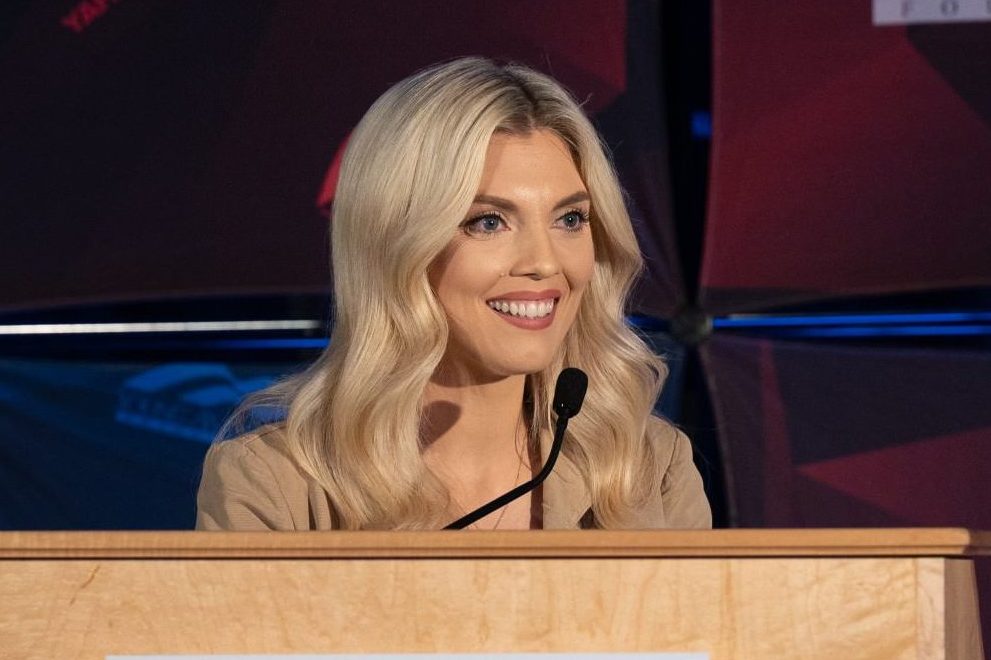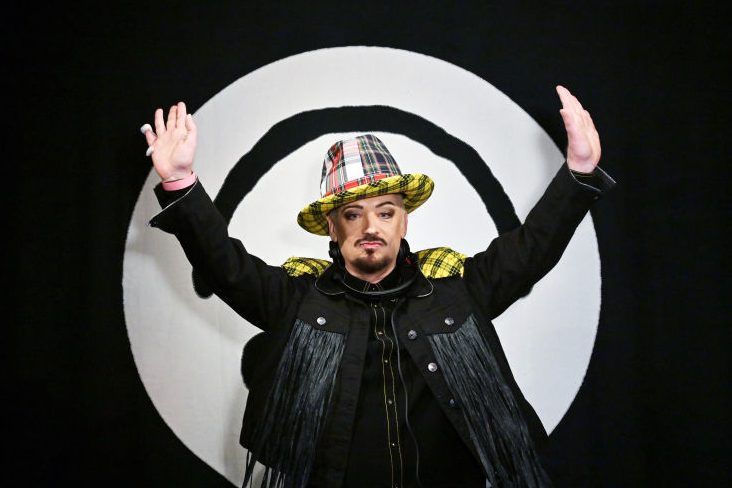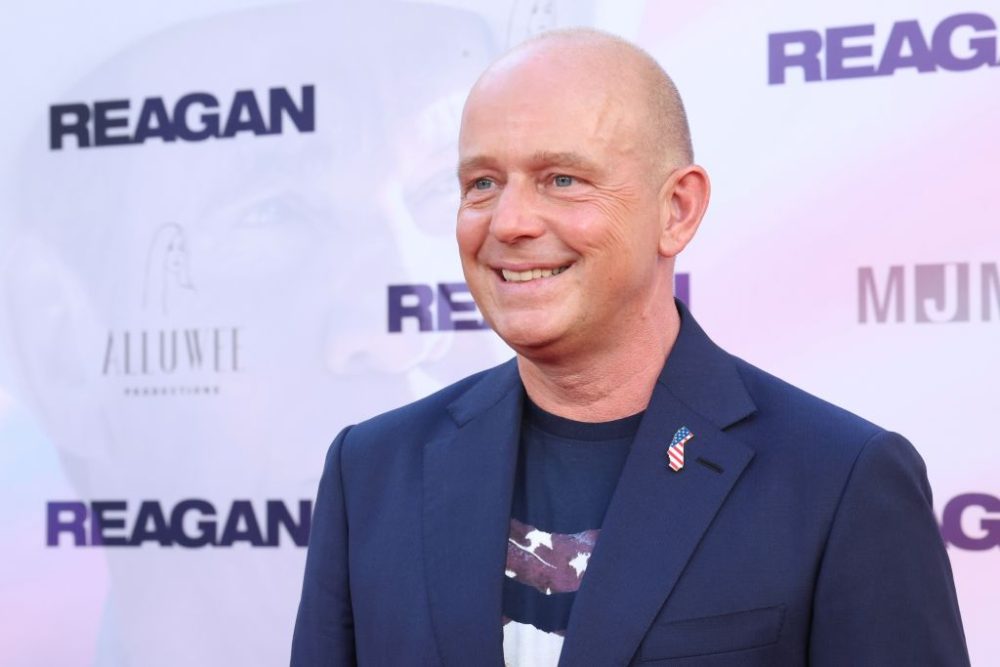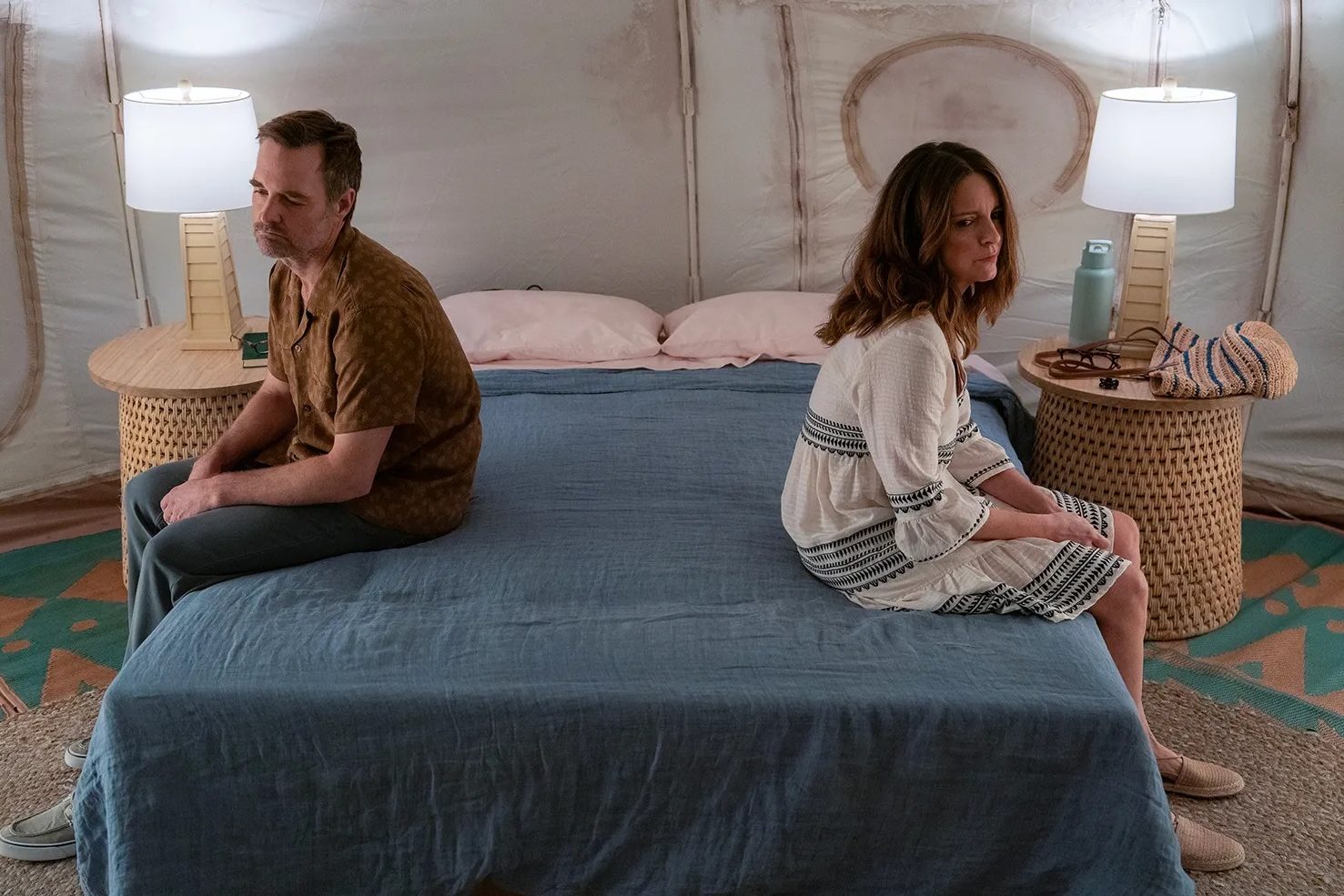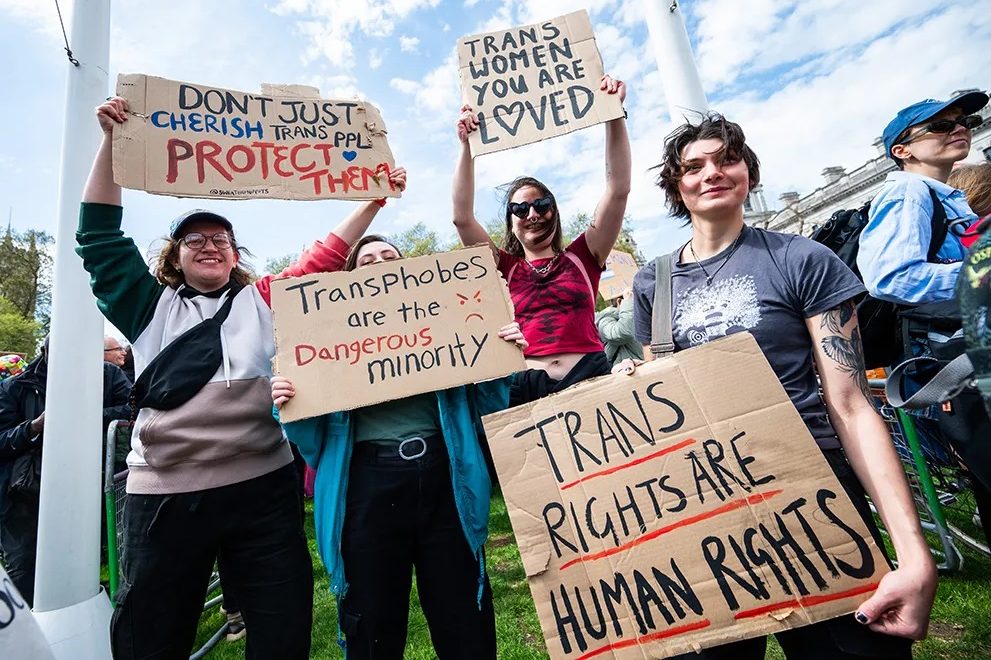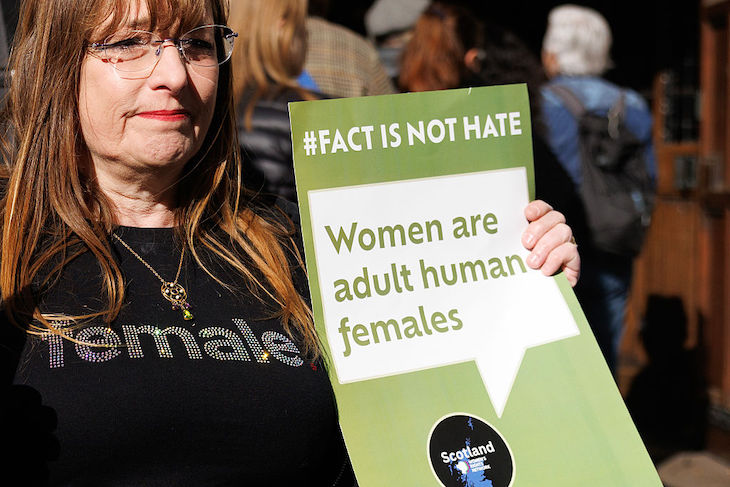Harrisonburg, Virginia
We’re sitting at the lobby bar of a Hyatt eating snacks, killing time until Liz Wheeler’s speech on transgenderism at James Madison University, which is slated for 6 pm. Liz’s private security suggested we not wait on campus, given the death threats she and her family have received over the past couple of weeks since the event was announced. A young man takes a few steps through the lobby, looks at Liz, stops, and backtracks behind a wall.
Liz whips her head to me.
“Do you think he recognized me?” she asks.
She’s on edge until the man re-emerges behind the bar wearing a name tag. He works here. Sigh of relief.
I first met up with Liz, who hosts her own podcast, The Liz Wheeler Show, at a hotel in DC earlier that day so we could travel together to the event. Her team hired a black SUV to drive us two, as well as her producer, Matt, a soft-spoken young man who looks a bit like he belongs at a Brooklyn loft party with his curly hair, glasses and all-black outfit.
I’ve known Liz for years through work and social media, but it was somehow our first time seeing each other in person. Liz is tiny in stature, but with memorably big blonde hair and tons of confidence. She doesn’t stutter when she speaks, rarely pauses in the middle of a thought and never uses filler words like “um” or “ah”. This makes her a very effective communicator, both personally and professionally. She previously hosted a primetime show on One America News, which she left in 2020.
We spend the drive talking about marriage, kids and our shared Catholic faith. She tells me that this is the first time she has been nervous before a public appearance since she was eighteen years old. Having been protested on campus before, I understand her anxiety. Everyone knows you get massive earned media from college kids having a meltdown in response to your speech — but you also carry concerns about your safety and ability to get your message across.
I’ll admit I initially thought Liz might have been a bit overly paranoid about what might happen at JMU — but then I saw videos of the on-campus protest in response to her appearance. There were hundreds — possibly a thousand — people gathered in the quad carrying signs and transgender pride flags. The backlash seemed comparable to that against Riley Gaines, the former college swimmer who was recently assaulted by a trans person at San Francisco State University, or TPUSA founder Charlie Kirk, whose detractors smashed windows at UC Davis.
On the quick drive from the Hyatt to the speech venue, we have a last-minute debate over whether Liz should wear the nude pumps she brought along or keep on her white sneakers. I suggest the sneakers would make it easier for her to run away from any crazy protesters. We laugh, but it’s only a half-joke. Liz opts for the sneakers.
We go through a back entrance, escorted by several police officers, and are guided to a green room with water and popcorn. Liz runs through her speech one last time as I head into the venue.
The venue is packed. I’m told that 200 students were turned away due to a lack of space. Everyone was required to go through a metal detector, and no one is allowed to leave until the event is over. Liz is introduced by the president of JMU’s Young America’s Foundation chapter, Parker Boggs. Boggs, a gay man, is wearing heeled white cowboy boots with his suit. He tells the crowd after outlining the personal attacks and threats his club has received, “We will not back down to the mob in any sort of way.” He has more of a backbone as a college student than many adults I’ve met: both the Student Government Association and, ironically, the debate team both condemned YAF and Wheeler ahead of her speech.
Liz finally takes the stage to loud applause. I’m surprised at how normal the crowd seems. There are a few crunchy and odd-looking folks in the back, but most of the students are tan, in shape and wearing JMU gear. I learned later that there were a lot of college athletes in the crowd — which tracks considering the implications of transgenderism for sports teams.
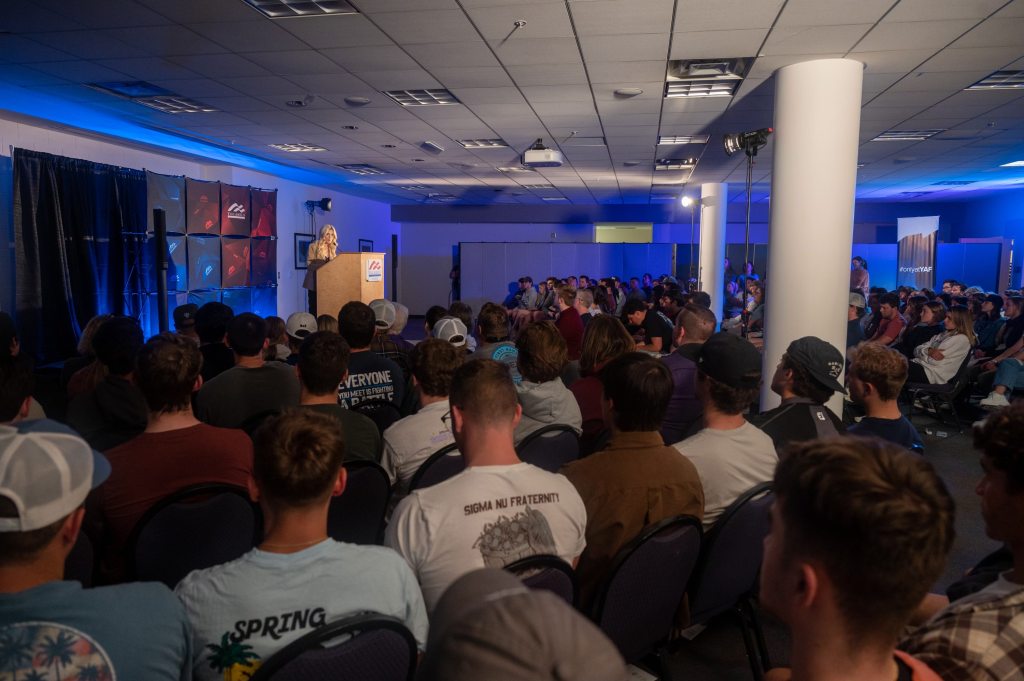
Liz spends her much of her speech discussing “queer theory” and also addresses any transgender individuals who might be watching.
“I don’t do this for fun. I do this because I care so deeply about you,” she says. “I care about your soul.”
“My heart breaks for these young people,” she continues, noting that many young people who identify as transgender have suffered abuse or have pre-existing mental health conditions that causes body dysmorphia. “We don’t hate you. We hate the people who are victimizing you.”
During the Q&A that follows Liz’s speech, she takes questions from two reporters for the campus newspaper, who insist that no children are undergoing sex change surgeries and are reticent to admit that puberty blockers are not FDA approved for the off-label use of indefinitely suppressing puberty for children suffering from gender dysphoria.
Then, in a heartbreaking moment, a young transgender person steps up to the microphone. Their gender identity is unclear, but they tell Liz that they were self-harming and suicidal prior to transitioning. Despite the person’s insistence that they are now physically and mentally well, it’s not clear that’s the case. They are rail-thin, hunched over and suffering from uncontrollable body and vocal tics.
Liz’s voice softens.
“I wish someone had told you before your transition that you are beautiful just the way you are,” she says.
When the event is over, Liz takes a few photos with YAF supporters before the police warn us that the mob of activists is marching our way and will be outside the venue in four minutes. We grab our stuff and head to the car, and are driven off campus to an Italian restaurant where we get dinner. Liz is clearly relieved that the speech went well and that there were no interruptions.
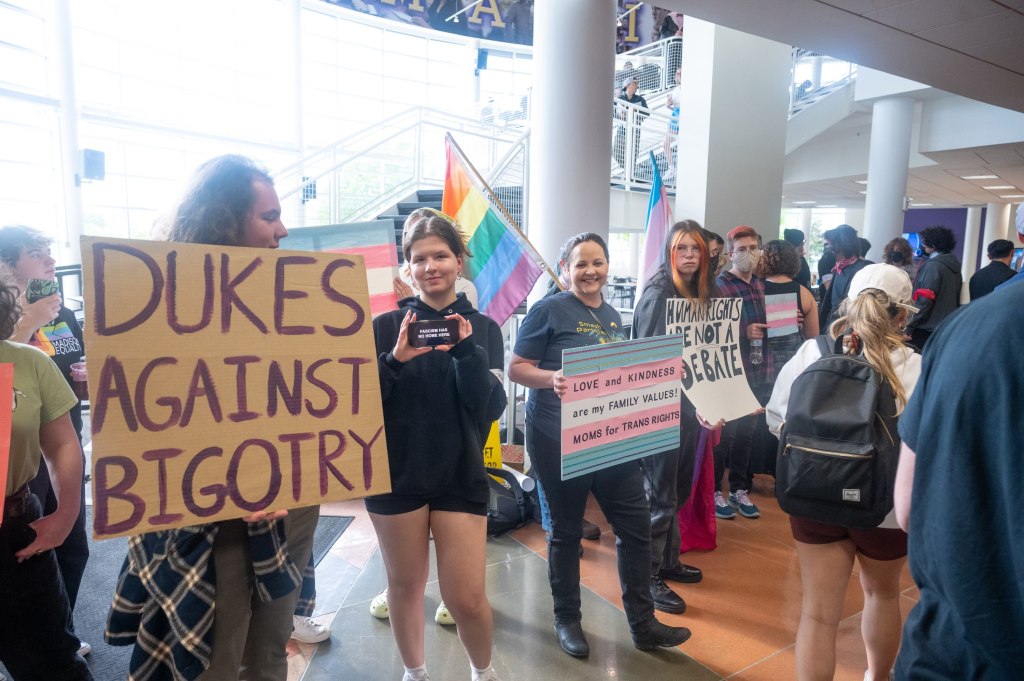
Liz sits with the YAF club at dinner, picking at a side of French fries. One member claims that she was nearly run over in the days ahead of the speech. She was wearing her YAF shirt while walking her dog, when a car accelerated toward her. Her boyfriend pushed her out of the way, and the car drove off.
It’s a helpful reminder that while we get to go home after this, these college kids live with the people on campus who have threatened them and attacked them all over social media. As we finish our meals, we learn that the Wilson building at JMU has been lit up with the transgender pride colors.
A campus spokesperson tells me that “student and community groups will often request the lights on Wilson Hall to be certain colors to recognize an event, organization or cause. The university honored the request that was received as we do for all requests. Wilson Hall has previously been lit up in honor of tragedies at other universities, Childhood Cancer Awareness, Autism awareness, the earthquakes in Syria, etc.”
The idea that a conservative commentator speaking on campus about biological truth is comparable to “tragedies” and “earthquakes” gives some insight as to why there was so much hysteria surrounding Liz’s event. As she pointed out to me earlier that day, the rhetoric of the transgender movement seems designed to spark violence. They invoke claims of a “genocide” and “erasure,” which justifies physical attacks on their so-called oppressors.
To Liz, this makes her message all the more important.
“How lucky am I to get to fight this evil for a living?” she asks. “How lucky am I to have found my purpose?”



